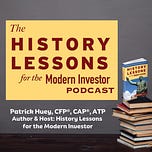On November 12, 1990, Tim Berners-Lee published a formal proposal for the World Wide Web, which would revolutionize information sharing and communication worldwide.
In 1989, while working as a software engineer at CERN (the European Organization for Nuclear Research) in Switzerland, Tim Berners-Lee noticed the difficulty scientists had in sharing information across different computer systems. To address this, he proposed a decentralized information management system allowing researchers to access and link documents on different computers seamlessly. His concept was inspired by hypertext, a method of text that links directly to other text, enabling a non-linear way of browsing information. Berners-Lee's initial proposal, titled "Information Management: A Proposal," outlined a vision for a "web" of interlinked documents accessible over the Internet. By 1990, he had created the core building blocks of the World Wide Web, including HTML (Hypertext Markup Language), which would be used to format documents; HTTP (Hypertext Transfer Protocol), a protocol for transferring information over the Internet; and the first web browser and editor. The early web was text-based and primarily used by academics, but it soon expanded beyond research institutions as people recognized its potential for broad, global communication. Berners-Lee’s invention fundamentally transformed how people access, share, and interact with information, leading to the rapid growth of the Internet as a tool for education, business, and social connectivity, making it one of the most significant technological innovations of the 20th century.
Investment Management: A Proposal
The internet has transformed investing in many positive ways, but it also has several downsides. Here are six lessons Modern Investors must remember when surfing the World Wide Web.
1. Information Overload and Noise
The internet provides vast amounts of information, but not all is relevant or accurate. Investors can easily get overwhelmed by a constant stream of data, opinions, and news updates, making it challenging to distinguish between valuable insights and noise. This can lead to poor decision-making based on incomplete or misleading information.
2. Herd Mentality and FOMO (Fear of Missing Out)
Social media platforms and online forums like Reddit, Twitter, and StockTwits amplify market sentiment. When investors see others jumping on a stock or trend, they may feel pressured to follow suit without proper research. This herd mentality can lead to speculative bubbles and increased market volatility, as seen with events like the GameStop short squeeze in early 2021.
3. Increased Exposure to Scams and Misinformation
The internet has become a breeding ground for investment scams and fraudulent schemes. From fake investment websites to pump-and-dump schemes promoted through social media, inexperienced investors are particularly vulnerable. The rise of cryptocurrency scams and misleading financial influencers pushing dubious products highlight the risks associated with online investment advice.
4. Short-Termism and Day Trading Temptation
Online trading platforms like Robinhood have made it easier for individuals to engage in day trading. The ease of access and gamified features encourage frequent trading. Studies have shown frequent traders tend to underperform the market due to impulsive, short-term decision-making rather than a long-term investment strategy.
5. Confirmation Bias and Echo Chambers
The internet often caters to users' preferences through algorithms that show content aligned with their previous searches and interests. This can create echo chambers, where investors only see information confirming their beliefs, reinforcing biases and potentially leading to poor investment choices. This can prevent investors from objectively assessing market risks and opportunities.
6. Emotional Decision-Making Triggered by Real-Time Updates
The availability of real-time data and market updates can lead to emotional decision-making. Constant access to portfolio performance and market fluctuations can trigger panic selling during market downturns or impulsive buying during rallies, often resulting in buying high and selling low, which harms long-term returns.
It turned out that sharing information was easy. But sharing good information was a lot harder. And sifting through it all to get to the good stuff, harder still.
The History Lessons Podcast is evolving! Enjoy “This Week in History,” and tune in for the HL4TMI Pod… interviews with history writers and makers. The Episode 🚦 Become A Better Historian (and Investor) While Sitting in Traffic-With Rebecca Bratspies is out now. See it here:
🎯Patrick Huey is a small business owner and the author of three books on history and finance as well as the highly-rated recently-released fictional work Hell: A Novel. As owner of Victory Independent Planning, LLC, Patrick works with families and non-profit organizations. He is a CERTIFIED FINANCIAL PLANNER™ professional, Chartered Advisor in Philanthropy® and an Accredited Tax Preparer. He earned a Bachelor’s degree in History from the University of Pittsburgh, and a Master of Business Administration from Arizona State University. Patrick previously served as a Naval Flight Officer from 1996-2005, earning the Strike Fighter Air Medal during combat operations and two Navy Achievement Medals. 👉🏻 Reach him at 877-234-8957 or schedule a time to talk using this link: https://live.vcita.com/site/VictoryIndependentPlanning/online-scheduling?service=qqnvdgx7ri5j5czq
#HistoryInvesting #WebOrigins #InvestingThroughTime #InternetHistory #DigitalRevolution #TechAndFinance #HistoryOfInvesting #InternetCreation #FinanceAndTech #FromHistoryToInvesting #WebInnovation #InternetPioneers #InvestingWisdom #TechHistoryPodcast #BuildingTheWeb #InvestingInTheFuture #EarlyInternetDays #InvestingLegends #HistoryOfTheWeb #PodcastAddict #LearnWithUs #TechTalks #FinanceFridays #WebWednesdays #InvestSmart #DigitalEvolution







